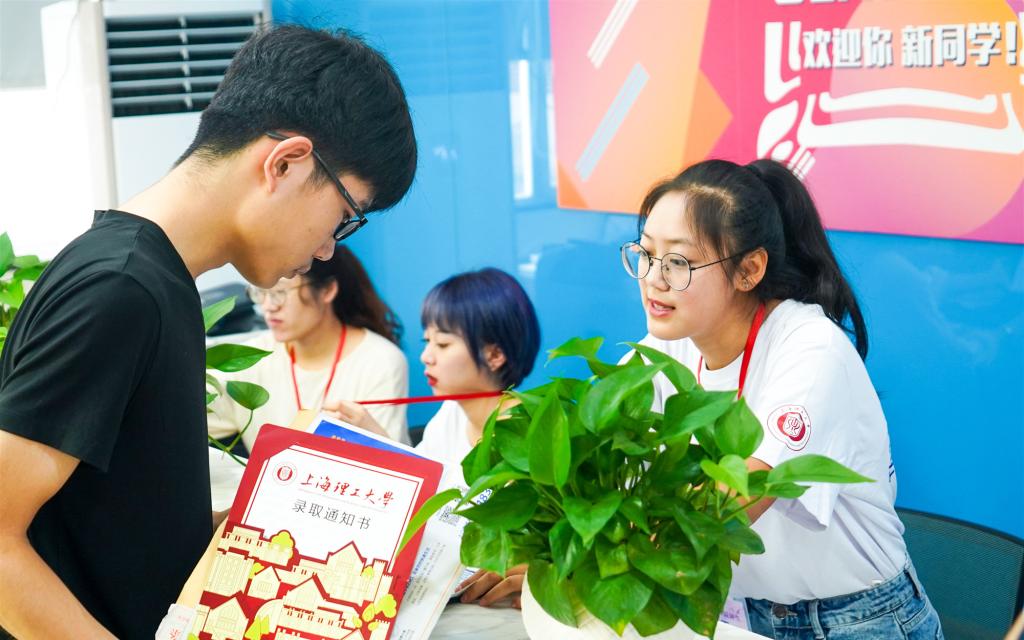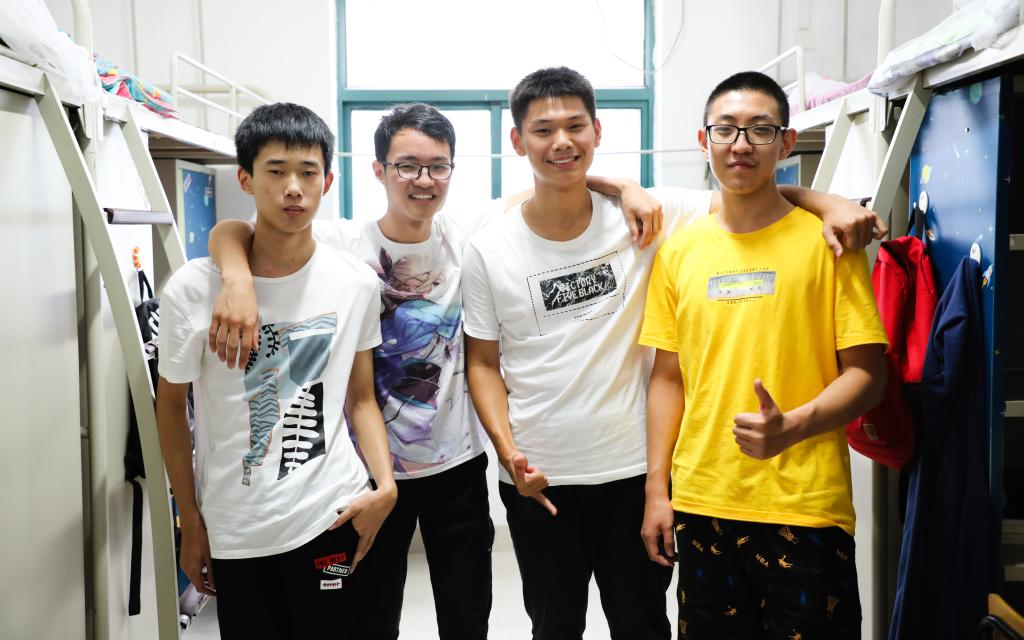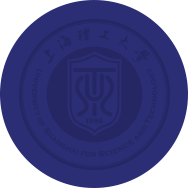“Build Dreams at USST, Guide the future,” against the red welcome banner, more than 4000 new comers came to USST from all areas, which instilled new vigor and vitality into the school with a history of almost 110 years.

With a shared identity—undergraduates of USST, these new comers entered into USST. According to admissions, the Students’ Work Division adopted the form of undifferentiated arrival, “At 21 undifferentiated arrival spots, 50 volunteers provide first-stop help for new comers,” said Xie Xihao, Vice Minister of the Students’ Work Division.

New comers are always filled with curiosity. This year, a warm-hearted robot Bo Ya Jiang could resolve their challenges. It is an AI service machine launched by the Information Office. New comers can talk with it by scanning a code. “Days during military training; Guide for delicacies near the school”. Whatever the young robot is asked, it knows USST like the back of its hand.

The second dining hall has: pure white spherical chandeliers, hexagon mosaic ceramic patterns, gothic fire windows, and red exterior walls of building. The second dining hall got renovated to welcome the new comers. With more than 260 seats, the dining hall in typical USST style is commodious enough for teachers and students to have meals, study and relax. Students majoring in Environmental Design from School of Environment and Architecture designed it and injected their love for USST into every detail. “We walked past every corner to observe architectural characteristics of the campus. There were 10 blueprints from the design to the construction. We hope that new comers can feel the cultural beauty of USST once arriving here,” said You Yiyi. Besides, for those students with taller figures, the Department of Logistic Management is working to lengthen beds for them.

“If you work hard at high school, you will feel relaxed in the university.” This is a misunderstanding of many new comers. Actually, new comers will confront a series of new challenges in a new environment. Professional knowledge and practice training are the most fundamental. Those scholarly individuals who spare no efforts and pursue excellence can also be involved in the honorable project, applying to learn honorable courses in the program, where they can be challenged by more difficult courses and expand knowledge boundaries. “The honorable project follows the principle of “wide range, deep foundation” to improve the learning results of students and the quality of talent cultivation,” said Zhu Jianmin, Dean of Academic Affairs.


 Home
·
News & Events
·
Content
Home
·
News & Events
·
Content

